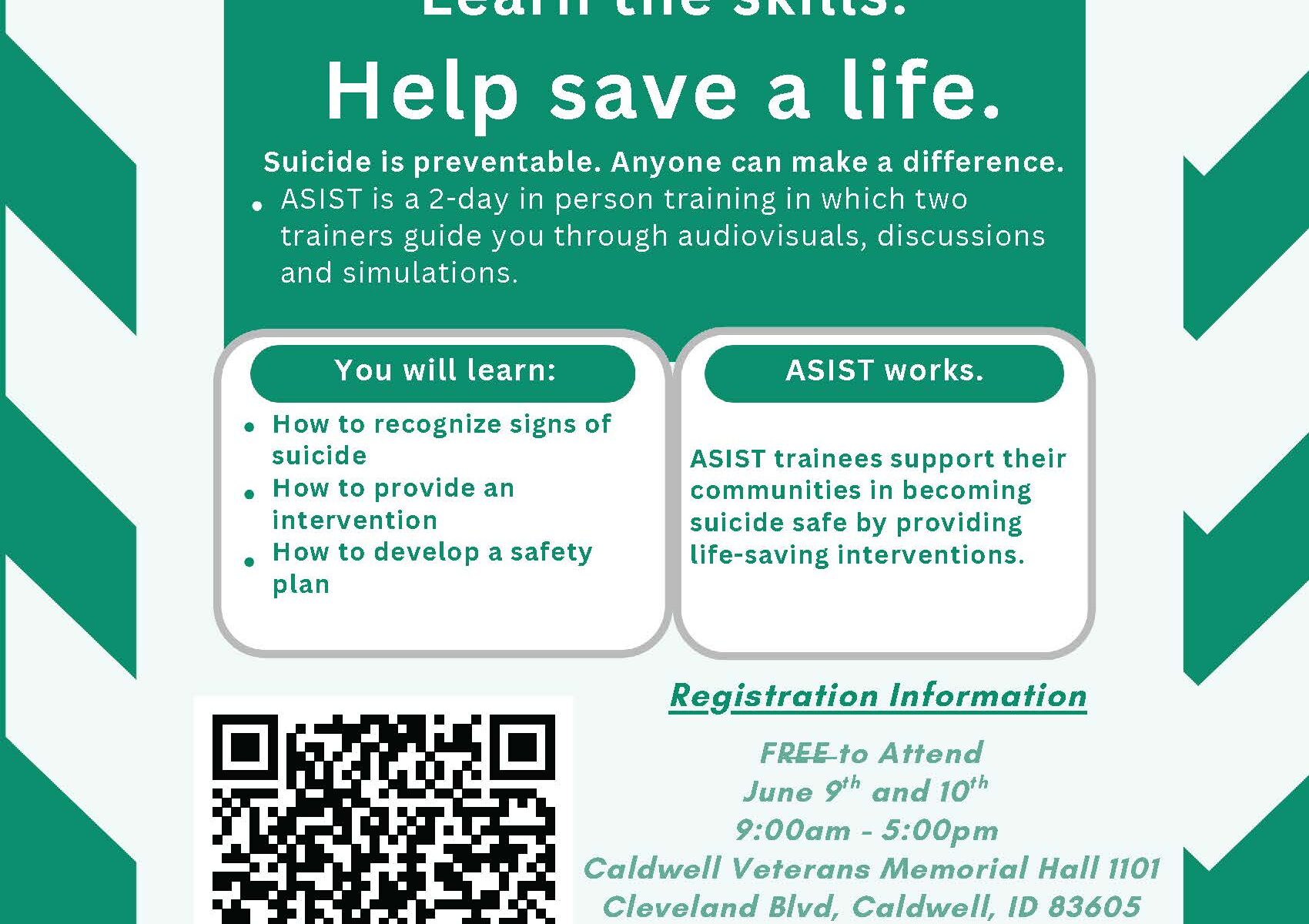🧠 Free ASIST Suicide Prevention Training – June 9–10, 2025 | Caldwell, ID
Want to learn how to recognize the signs of suicide and take life-saving action? Join the Gem State Public Health AmeriCorps for a powerful 2-day ASIST (Applied Suicide Intervention Skills Training) course in Caldwell, Idaho.
This free, in-person training teaches essential skills to help you intervene when someone may be at risk for suicide. Whether you’re a community leader, caregiver, educator, or simply someone who wants to help—this training is open to all.
📍 Training Details
-
Dates: June 9 & 10, 2025
-
Time: 9:00 AM – 5:00 PM (both days)
-
Location: Caldwell Veterans Memorial Hall
1101 Cleveland Blvd, Caldwell, ID 83605 -
Cost: FREE
-
Registration Link: https://tinyurl.com/yc3vt8d4
-
Includes: LivingWorks Certification + CEUs upon completion
Note: You must attend both full days (16 hours total) to become a certified interventionist.
💡 What You’ll Learn
-
How to recognize warning signs of suicide
-
How to confidently provide a safe intervention
-
How to create a personalized safety plan for someone in crisis
✅ Why It Works
ASIST trainees go on to support their families, workplaces, and communities with life-saving skills. The training is guided by two certified trainers using simulations, group discussions, and video demonstrations.
This isn’t just a class—it’s an action plan to save lives.
📞 Questions?
Contact Idaho State University:
📧 ihisuu.edu
📞 208-282-4436

